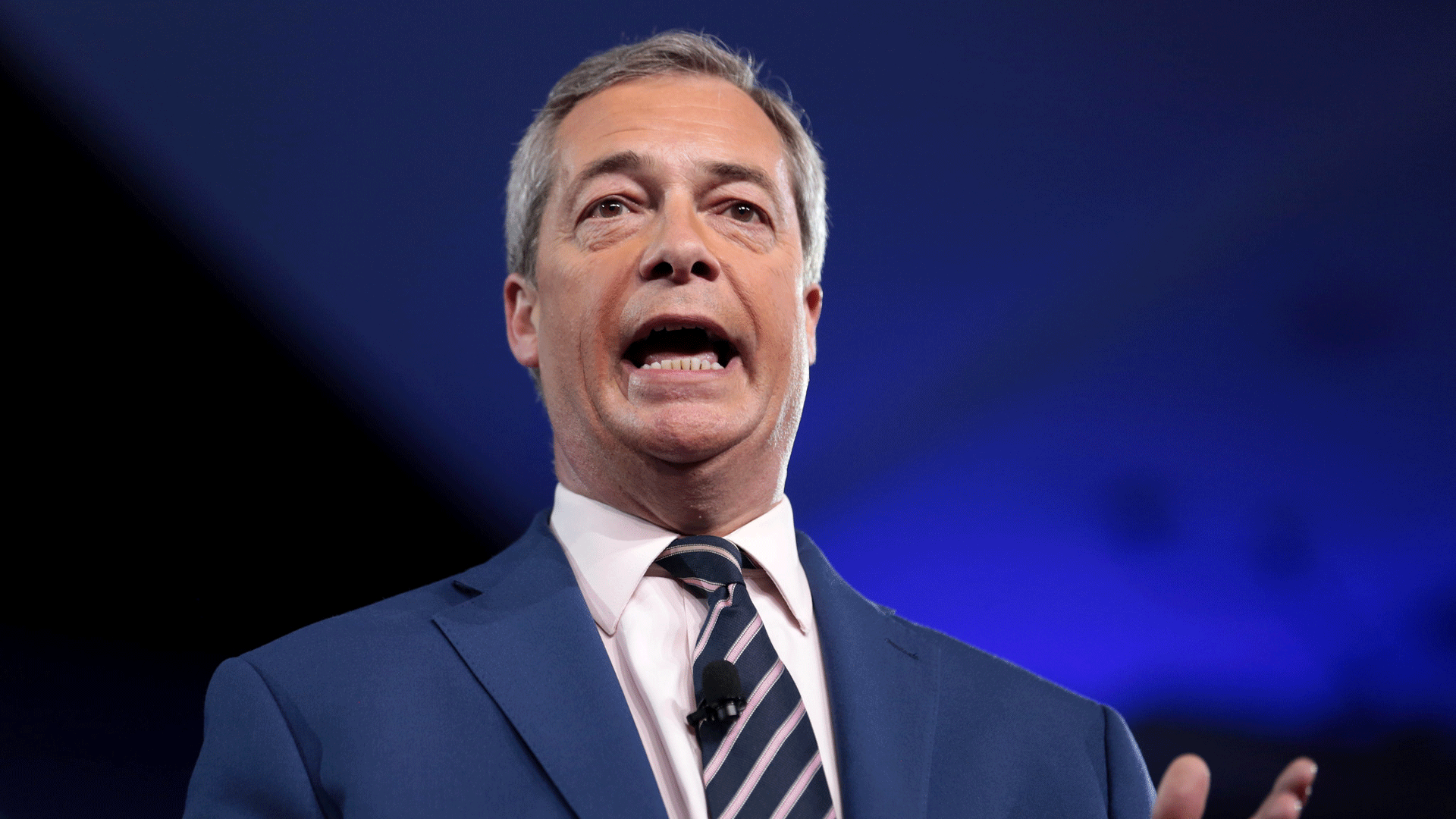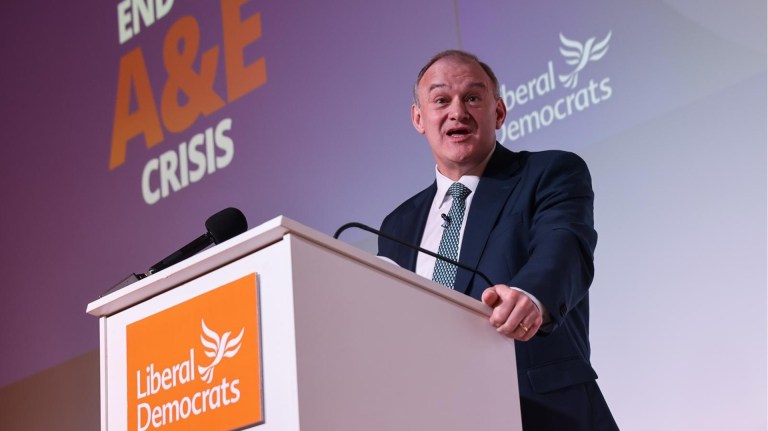That sense of “grinding decline” runs through people’s views of politics and public services alike.
The share of Britons who feel most public services are ready to listen to complaints has almost halved over the last 23 years, from 49% to 26%.
Nearly half (47%) disagree with this statement, while the rest don’t know. But two-thirds (65%) of Reform voters disagree – the only party where a large majority feel this way, compared to 41% of Labour voters and 43% of Liberal Democrats.
“It isn’t one very high-profile thing that’s gone wrong,” Duffy explains. “It’s a low, slow, chronic condition of loss of confidence. We’re not really delivering for lots of people. With stagnant growth and huge pressures on public finances, it’s become increasingly difficult to deliver better outcomes.”
Reform UK’s success in harnessing these frustrations is no accident, he he adds.
“It is a very core element of a populist playbook. The narrative is that things have gone downhill, they’re getting worse, and we need to stop that decline,” Duffy says. “A lot of it is about nostalgia for when things seemed to work better, as well as the sense that an elite is looking after themselves but not you.”
Advertising helps fund Big Issue’s mission to end poverty
The correlation between poverty and anti-establishment politics is well established: Reform stands to gain most electorally in towns with poor rates of social mobility, research shows.
Earlier this year, researchers at Imperial College London found a “significant positive association” between high street vacancy rates and the popularity of Reform’s predecessor, UKIP.
Reform UK channels resentment in two directions at once, explains Duffy.
“Populist appeals point upwards to a distant elite holding all the power, and outwards to groups – particularly immigrants – who are portrayed as taking what should be yours. There’s a lot of resentment at the core of it, tied very closely to these feelings of powerlessness.”
From the “take back control” slogan of Brexit to the more recent “only Reform will take back control over our borders”, this is clear in right-wing sloganeering.
Four in 10 Britons feel they have “no influence at all” over national decision making; among Reform UK supporters, this spikes to 56%. Only non-voters (60%) register a higher tally.
Advertising helps fund Big Issue’s mission to end poverty
Reform UK supporters and non-voters are also the most negative about their role in local decision making – 45% and 51% respectively feel that they have no influence at all, compared to 30% nationally.
This feeling is intimately linked to service decline. The survey shows a collapse in confidence that public services will respond to complaints.
“The big change has been in whether services are seen as responsive,” Duffy says. “The proportion of people disagreeing that services listen to complaints has doubled. That reflects years of pressures.”
The researchers asked respondents to tally the institutions they have the most and least trust in.
When the public are asked which services, from a list of 19, are least likely to prioritise their interests, local councils are the most frequently chosen answer, selected by 28% of people. This places them on par with private landlords (27%) for negative public perception.
Government benefits offices (26%), utility providers (24%) and the police (22%) are seen as next least likely to put people’s interests first, while few say the same of hotels (6%), restaurants (7%), supermarkets (7%) and schools (8%).
Advertising helps fund Big Issue’s mission to end poverty
Local councils in particular face a difficult task.
“Councils cover an awful lot of services and have a lot of touch points with people,” Duffy says. “It only takes one or two bad experiences – whether it’s parking, housing, or education – to colour your whole view. On top of that, they’ve had huge funding cuts for years, with more of their budgets swallowed by social care. It’s a tough ask.”
By contrast, institutions with direct, personal interactions – such as restaurants, supermarkets, banks, or GP surgeries – are rated much more positively. “If you’re face to face, or there’s a strong commercial imperative to fix the problem, people feel more listened to,” says Duffy. “The NHS also benefits from a kind of national affection that gives it a head start, even when people struggle to access services.”
As democratic disconnect grows and public services fail to improve, Reform is waiting in the wings.
“People want to feel that things are getting better,” Duffy says. “Until they do, the sense of powerlessness will remain… that’s worrying for the government and for all of us.”
Do you have a story to tell or opinions to share about this? Get in touch and tell us more.
Advertising helps fund Big Issue’s mission to end poverty
Reader-funded since 1991 – Big Issue brings you trustworthy journalism that drives real change.
Every day, our journalists dig deeper, speaking up for those society overlooks.
Could you help us keep doing this vital work? Support our journalism from £5 a month.





